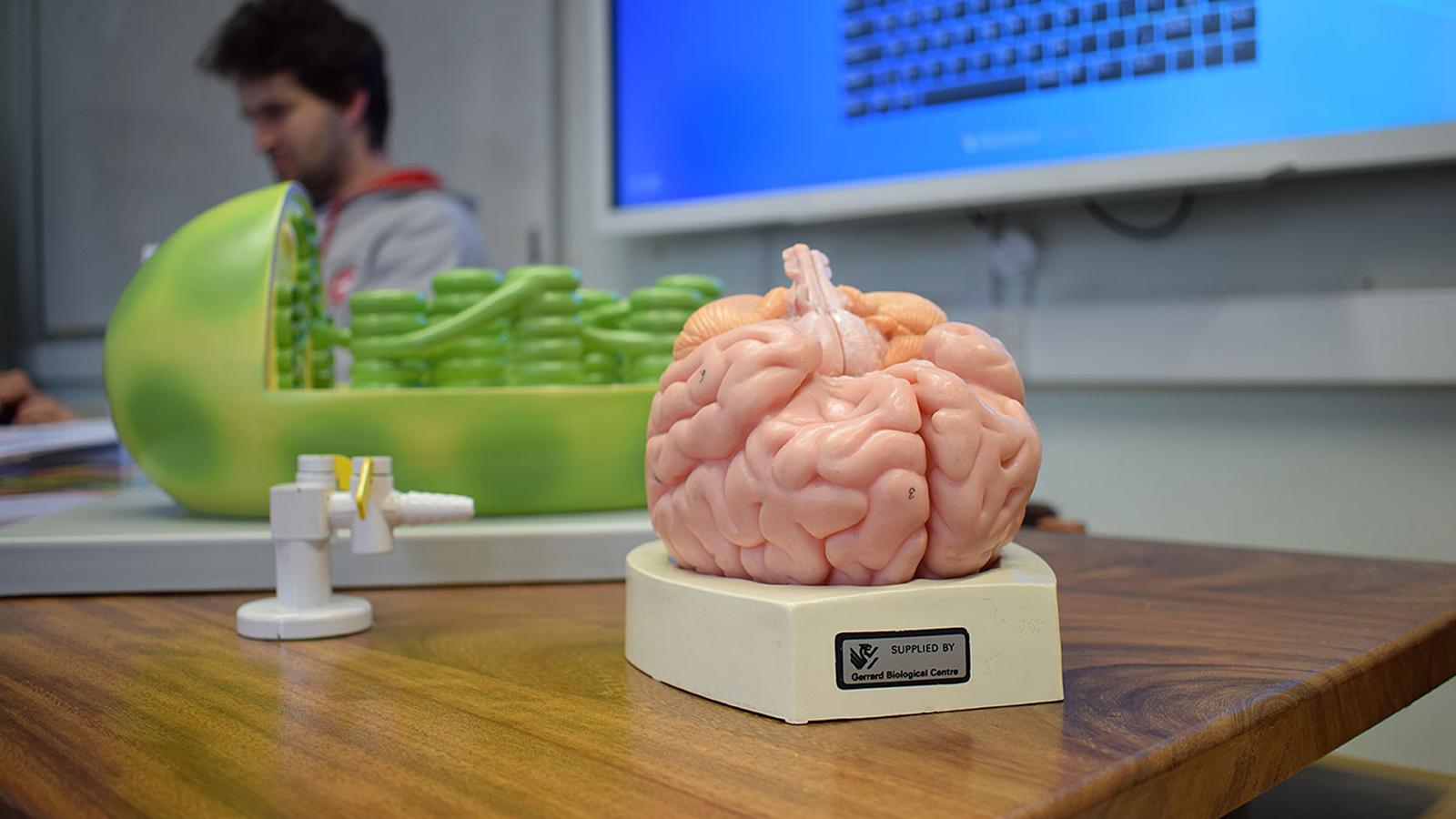- Sixth Form
Psychology is the scientific study of the mind and behaviour. It uses the research methods of the sciences (particularly experiments) to investigate the human mind and to find out about and make sense of human behaviour. It is a very varied subject because any aspect of human behaviour can be looked at.
Why study psychology?
- You can gain a greater appreciation for human development at all stages of life. Understanding human behaviour can make it easier to understand the people around you. It can also shine a light on your own experiences as you encounter different challenges and opportunities.
- You'll gain a stronger grasp of research methods. Having an understanding of psychology research methods can help you better understand some of the many claims that you’ll encounter in books, magazines, television shows, and movies.
- Psychology can help you in your future career, whatever that may be. There are plenty of exciting careers in psychology that you might want to explore, but studying the subject can help you in many other professions as well.
- Psychology can complement your study in all subjects. A Level Psychology complements all subjects .
- Studying psychology can also give you greater insight into mental illness, including how psychological conditions are diagnosed and treated. You can also discover how mental wellness can be enhanced, how to reduce stress, and to live a happier, healthier life.
- Psychology can be both fun and fascinating! From intriguing theories for schizophrenia to shocking experiments that expose how far people will go to obey an authority figure, there is always something amazing and even downright astonishing to learn about the human mind and behaviour.
What will I be studying on the course?
Students will learn the AQA Psychology specification, which contains three units:
- Introductory topics in Psychology – students will explore four topics within this unit that will introduce them to the different ways psychology can explain human behaviour. The four topics comprise of Social Influence, Memory, Attachment and Psychopathology.
- Psychology in Context – there are three topics within this second unit; Approaches, Research Methods and Biopsychology. In Research Methods, students will learn how to conduct research scientifically by conducting and evaluating their own classroom experiments, observations and self-reports.
- Issues and Options in Psychology – this unit is predominantly taught in the second year of the A Level. Once students have learnt the foundations of psychology, how it attempts to explain human behaviour and study it, they will apply this knowledge to four core topics. Schizophrenia, Forensic Psychology, Cognitive & Development and Issues & debates.
How will I be assessed?
Psychology is a linear A Level course. Assessment will be through three, two hour written examinations taken at the end of the two-year course. The examinations are equally weighted, out of 96 marks. Question types range from short answers to extended, essay-type answers. There is no coursework.
After the course
The knowledge of psychology, and skill learnt whilst on the course are relevant to any career involving contact with other people. Whilst they will be particularly relevant to careers such as teaching, personnel management, medicine and social work, they are also relevant to careers in the police, business, customer relations, marketing, and law. An A Level in psychology can help you into work but is also recognised as a sound preparation for university.
Entry requirements
You should have at least a grade 6 in GCSE (or equivalent) Maths and sciences. You should have at least a grade 6 in two writing-based subjects (e.g. GCSE English Language, English literature, History, Geography, Business Studies, Religious Studies, etc).
Examining board: AQA
Head of Department: Jessica Warren
